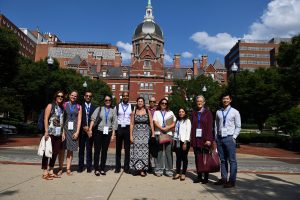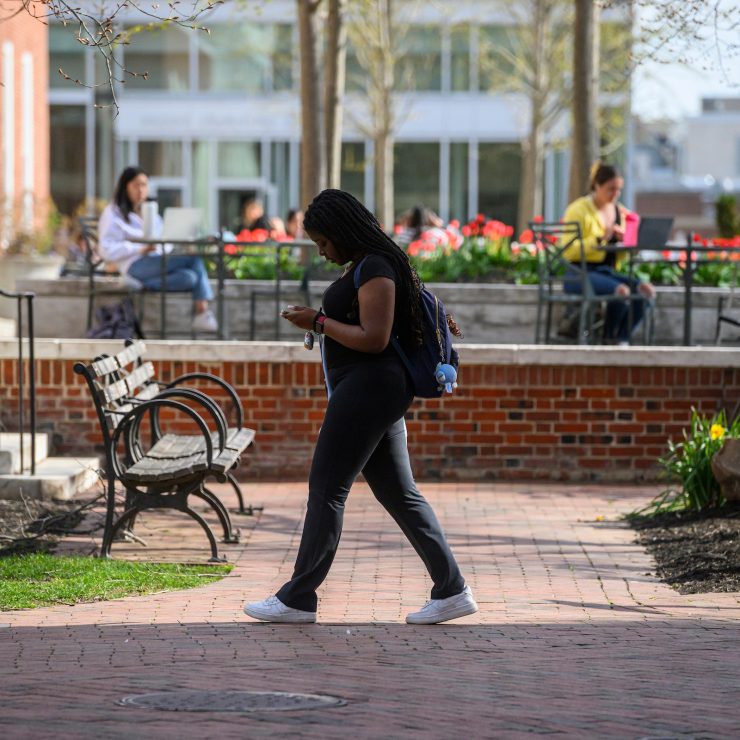Johns Hopkins master’s programs in education are globally respected because they are backed by a powerful tradition of rigorous research and proven practice. Our master’s degree cohorts also benefit from the dedicated support of professors who are leaders in the field.
Master of Science in Counseling
Make a positive impact in the lives of those you serve by getting exposure to the most up-to-date and evidence-based methods in the field of counseling. Concentrations include clinical mental health counseling and school counseling.

2 High-Demand Concentration Areas
Focus your graduate studies in either school counseling or clinical mental health counseling.

2 High-Demand Concentration Areas
Focus your graduate studies in either school counseling or clinical mental health counseling.
Master of Science in Education Policy
The Master of Science in Education Policy prepares education leaders of the 21st century with wide-ranging skills necessary to shape effective, evidence-based education policies.
Master of Education in the Health Professions
This program, created in collaboration with the Johns Hopkins schools of Business, Education, Medicine, Nursing, and Public Health, prepares medical professionals to become education leaders in the health fields.
MEHP Newsletter
Read the MEHP Newsletter, highlighting news and achievements of Johns Hopkins Master of Education in the Health Professions students and alumni.

“I can’t speak highly enough of my experience as a fellow of the MEHP program. To this day it befuddles me how the MEHP faculty can be so generous with their time and be so willing to help you on your journey to become an educational leader.

MEHP Newsletter
Read the MEHP Newsletter, highlighting news and achievements of Johns Hopkins Master of Education in the Health Professions students and alumni.

“I can’t speak highly enough of my experience as a fellow of the MEHP program. To this day it befuddles me how the MEHP faculty can be so generous with their time and be so willing to help you on your journey to become an educational leader.

Master of Education for Teaching Professionals
Preparing professionals for the far-reaching challenges of the 21st century requires unique teacher training. TeachingWell is a Johns Hopkins Master of Education for Teaching Professionals that infuses environmental issues into K-12 STEM instruction while providing four years of ongoing mentorship and support.
“TeachingWell brings a unique emphasis on strengthening teachers’ mental health and career resilience—while reducing financial barriers for entering the profession.


“TeachingWell brings a unique emphasis on strengthening teachers’ mental health and career resilience—while reducing financial barriers for entering the profession.


Master of Science in Special Education
Whether you’re pursuing a career in special education or are interested in developing expertise in this critical field, the Johns Hopkins School of Education offers two specializations to customize your master’s degree to your professional goals. One degree. Two pathways from which to choose.
Master of Science in Education
The Johns Hopkins School of Education’s Master of Science in Education degree programs develop specialty expertise in high-demand fields of study.




